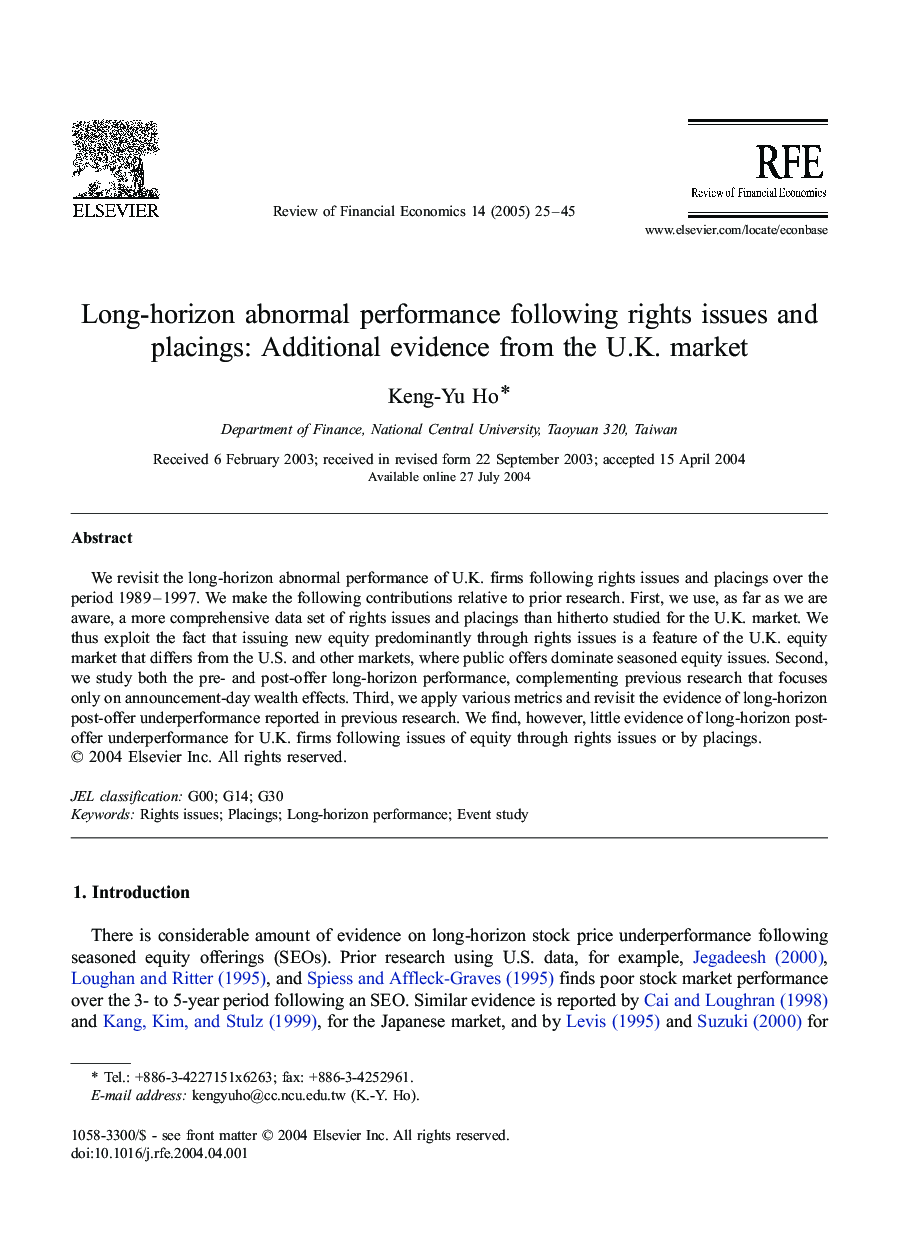| Article ID | Journal | Published Year | Pages | File Type |
|---|---|---|---|---|
| 9732246 | Review of Financial Economics | 2005 | 21 Pages |
Abstract
We revisit the long-horizon abnormal performance of U.K. firms following rights issues and placings over the period 1989-1997. We make the following contributions relative to prior research. First, we use, as far as we are aware, a more comprehensive data set of rights issues and placings than hitherto studied for the U.K. market. We thus exploit the fact that issuing new equity predominantly through rights issues is a feature of the U.K. equity market that differs from the U.S. and other markets, where public offers dominate seasoned equity issues. Second, we study both the pre- and post-offer long-horizon performance, complementing previous research that focuses only on announcement-day wealth effects. Third, we apply various metrics and revisit the evidence of long-horizon post-offer underperformance reported in previous research. We find, however, little evidence of long-horizon post-offer underperformance for U.K. firms following issues of equity through rights issues or by placings.
Keywords
Related Topics
Social Sciences and Humanities
Economics, Econometrics and Finance
Economics and Econometrics
Authors
Keng-Yu Ho,
